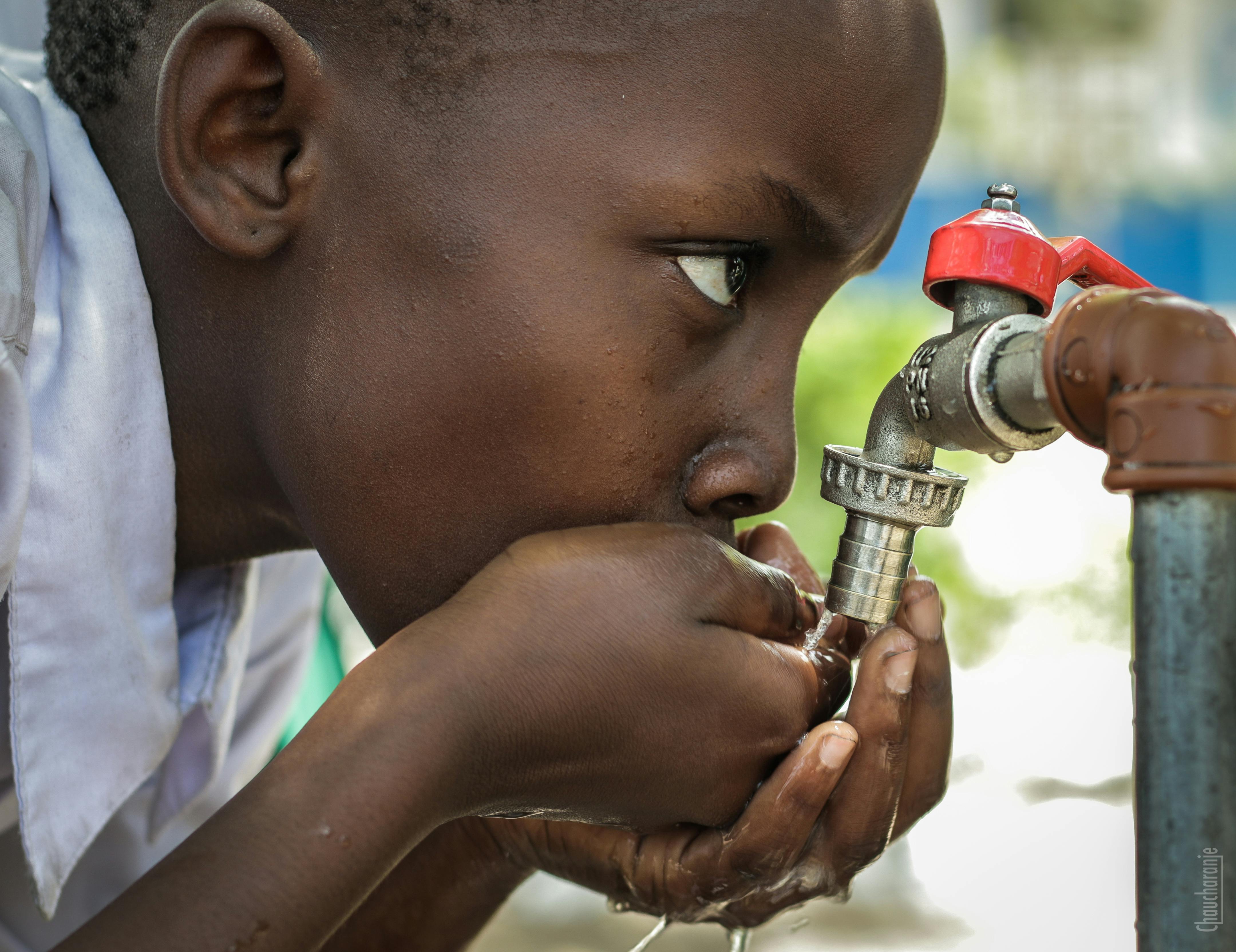Distilled water is a type of purified water that has had both contaminants and minerals removed. It is created by boiling regular water and allowing the steam to condense back into liquid form. This process is known as distillation. Many people wonder if distilled water is good for drinking, as it lacks the essential minerals that are found in other types of drinking water. This article will discuss the pros and cons of drinking distilled water, as well as which individuals may benefit from its consumption.Yes, distilled water is safe to drink. Distilled water is a type of purified water that has had both contaminants and minerals removed through a process of distillation. As a result, it does not contain any impurities or contaminants, making it safe for human consumption.
Distilled Water
Distilled water is water that has been processed to remove impurities and contaminants, including minerals and other dissolved solids. The process of distillation involves boiling the water and then condensing the steam into a clean container, leaving many of the solid contaminants behind. Distilled water has many uses, including medical, industrial, and even drinking purposes. It is also commonly used in steam irons and car batteries. In addition to its purity advantages over tap water, it also has an extended shelf-life due to it being free of microorganisms.
Distillation is one of the oldest methods of purifying water, with records showing its use as early as 200 B.C. Today, distillation is still used as a means for purifying drinking water in areas without access to safe tap water or bottled options. The process works by heating the contaminated water until it evaporates into a vapor state; once in this state, the impurities remain in the boiling chamber while only clean vapor passes through a cool condenser where it turns back into liquid form and is collected in a separate container.
The primary benefit of drinking distilled water is that it does not contain any additional minerals or other substances that can be found in tap or spring waters. This can be beneficial for those who are on certain diets or have specific medical needs which require them to avoid certain minerals or additives found in other types of bottled or tap waters.
However, distilled water does have some drawbacks compared to other types of purified waters; namely that it lacks essential minerals like calcium and magnesium which are found in spring waters. Additionally, some people may find that distilled water has an unappealing taste due to its lack of natural minerals and electrolytes.
Benefits of Drinking Distilled Water
Drinking distilled water offers many benefits. It is pure and free of contaminants, minerals, and toxins, which makes it an ideal choice for those looking to improve their health. Furthermore, distilled water has a neutral pH balance, making it ideal for those with sensitive stomachs. Additionally, distilled water has a longer shelf life than regular tap water and is easier to store in large quantities.
Distilled water can also help to improve the quality of drinking water by removing impurities. This is especially beneficial for those who live in areas where tap water may contain high levels of pollutants or other contaminants. By using a distiller to remove these impurities, you can enjoy clean and safe drinking water without the need for expensive filtration systems.
Finally, drinking distilled water can help to reduce your risk of developing certain illnesses and diseases such as kidney stones and urinary tract infections. This is because the process of distillation removes any harmful bacteria or viruses that may be present in regular tap water. Furthermore, distilled water also helps to flush out toxins from your body, providing additional health benefits as well.
Risks of Drinking Distilled Water
Drinking distilled water has its own risks and disadvantages. One of the main issues is that it can lead to mineral deficiencies in the body. The process of distillation removes beneficial minerals like calcium and magnesium from the water, which can lead to deficiencies if not supplemented in other ways.
Another potential risk of drinking distilled water is that it can lower the pH level in the body. This can make the body more acidic, which is associated with a higher risk for certain diseases and chronic health conditions.
Distilled water may also lack certain trace elements, such as fluoride, which are important for healthy teeth and bones. This is why many people choose to drink bottled water or tap water which contains added minerals and trace elements for health benefits.
Finally, distilled water does not contain any natural minerals or electrolytes, which are important for maintaining hydration levels in the body. This means that drinking too much distilled water could lead to dehydration if adequate amounts of electrolytes are not consumed through other sources such as food or supplements.
What is Distillation?
Distillation is a process used to separate components of a mixture, such as liquids or gases, by using differences in their boiling points. In this process, the mixture is heated until it vaporizes and the vapors are condensed back into liquid form. The various components of the mixture have different boiling points and therefore, will condense at different temperatures. The process of distillation can be used to purify liquids or extract useful compounds from them.
How Does Distillation Work?
Distillation works by heating a liquid mixture until it reaches its boiling point and then capturing the vapors produced by it. As the liquid boils, its components will vaporize at different temperatures and pressures. By controlling these temperature and pressure conditions, it is possible to separate out the different components of the mixture as they vaporize. The vapors produced can then be cooled and condensed back into liquid form for further purification or collection of useful compounds.

Alternatives to Distilled Water
Distilled water is water that has been purified using a process called distillation. This process involves boiling the water, then condensing the steam back into liquid form. While distilled water is great for certain applications, it does not contain any minerals or other beneficial compounds found in other types of water. Fortunately, there are several alternatives to distilled water that can provide similar benefits without sacrificing important nutrients.
One alternative to distilled water is spring water. Spring water comes from an underground aquifer, which contains numerous minerals and compounds beneficial to health. This type of water has been filtered naturally through the earth and has a much different taste than distilled water. It is also free of any chemicals or contaminants that could be found in tap or bottled water.
Another alternative to distilled water is reverse osmosis (RO) filtered water. RO filtration systems use a semi-permeable membrane to remove impurities from the source water. This type of system can produce very pure and clean-tasting drinking water, but it does not contain any minerals or other beneficial compounds that can be found in spring or mineral waters.
Finally, there are several types of mineral waters available on the market today. These waters are naturally sourced from deep underground springs and contain numerous beneficial minerals such as calcium, magnesium, and sodium. Mineral waters also have a distinct taste compared to normal bottled or tap waters; some people find them more pleasant to drink than plain distilled waters.
Making Distilled Water at Home
Distilled water is purified water achieved through a process of distillation. It is generally used in medical and scientific laboratories, as it is free from impurities and contaminants that may be found in tap water. Distilling water is also a great way to make drinking water that is free from bacteria, heavy metals, and other toxic substances. Making distilled water at home is simple and can be done with minimal equipment. Here’s how to go about it:
The process of distillation involves boiling the water until it turns into steam and then condensing the steam back into liquid form. To do this at home, you will need a large pot, some ice cubes, a glass container or plastic container with a lid, a long tube that fits snugly over the mouth of the container, and some type of filter such as a coffee filter or cheesecloth. Place the pot on the stove top and fill it with tap water. Turn on the heat to high until the water begins to boil.
Once the water has reached its boiling point, place the tube over the mouth of the glass or plastic container, making sure there are no gaps between them. Place some ice cubes around the tube so that when steam passes through it will condense into liquid droplets which will fall into your container. As this happens, you should begin to see droplets collecting at the bottom of your container.
Next step is to filter out any impurities from your distilled water by passing it through a coffee filter or cheesecloth before pouring it into your storage containers for future use. Make sure to use clean containers for storing your distilled water as any impurities from dirty containers could contaminate your distilled water again.
That’s all there is to making distilled water at home! This method can also be used for other liquids such as fruit juices or alcohol for distillation purposes if desired. It may take longer than purchasing pre-distilled bottled waters but if you’re looking for an economical way to obtain pure drinking water then this method may be right up your alley!
How to Store Distilled Water?
Storing distilled water is an important part of ensuring that it remains safe to drink. When stored properly, distilled water can last for years without any degradation in quality. There are a few simple steps that can be taken to ensure that the water is stored correctly, and that it remains safe for drinking.
The first step when storing distilled water is to make sure the container is clean and free from contaminants. This means washing the container thoroughly with soap and water before filling it with distilled water. It is also important to use a container made from materials that won’t leach chemicals into the water, such as glass or stainless steel.
Once the container has been cleaned, it should be filled with distilled water and sealed tightly. It is best to use a container with an airtight lid so that no oxygen can get in and cause the water to spoil more quickly. The container should then be stored in a cool, dark place where temperatures remain relatively consistent.
It’s also important to check on the distilled water regularly and make sure the seal on the container is still intact. If there are any signs of contamination or spoilage, discard the contents immediately and start again with fresh distilled water.
By following these simple steps, you can ensure that your distilled water remains safe and drinkable for years to come.

Conclusion
Distilled water is a great option for those who don’t have access to clean, safe drinking water. It has been proven to be safe and free from many of the impurities and contaminants found in tap water. It also offers the added benefit of not containing any minerals or nutrients, making it an ideal choice for those on special diets and medical treatments that require a low mineral content. Distilled water may not be the tastiest option out there, but it is certainly one of the safest and most reliable.
Overall, distilled water is a good choice for drinking if you don’t have access to clean, safe drinking water. It can be used as part of a healthy lifestyle, but should not replace essential nutrients and minerals found in other forms of drinking water. Drinking distilled water can help ensure that you stay hydrated and healthy, but it should never replace essential nutrients and minerals in your diet.

